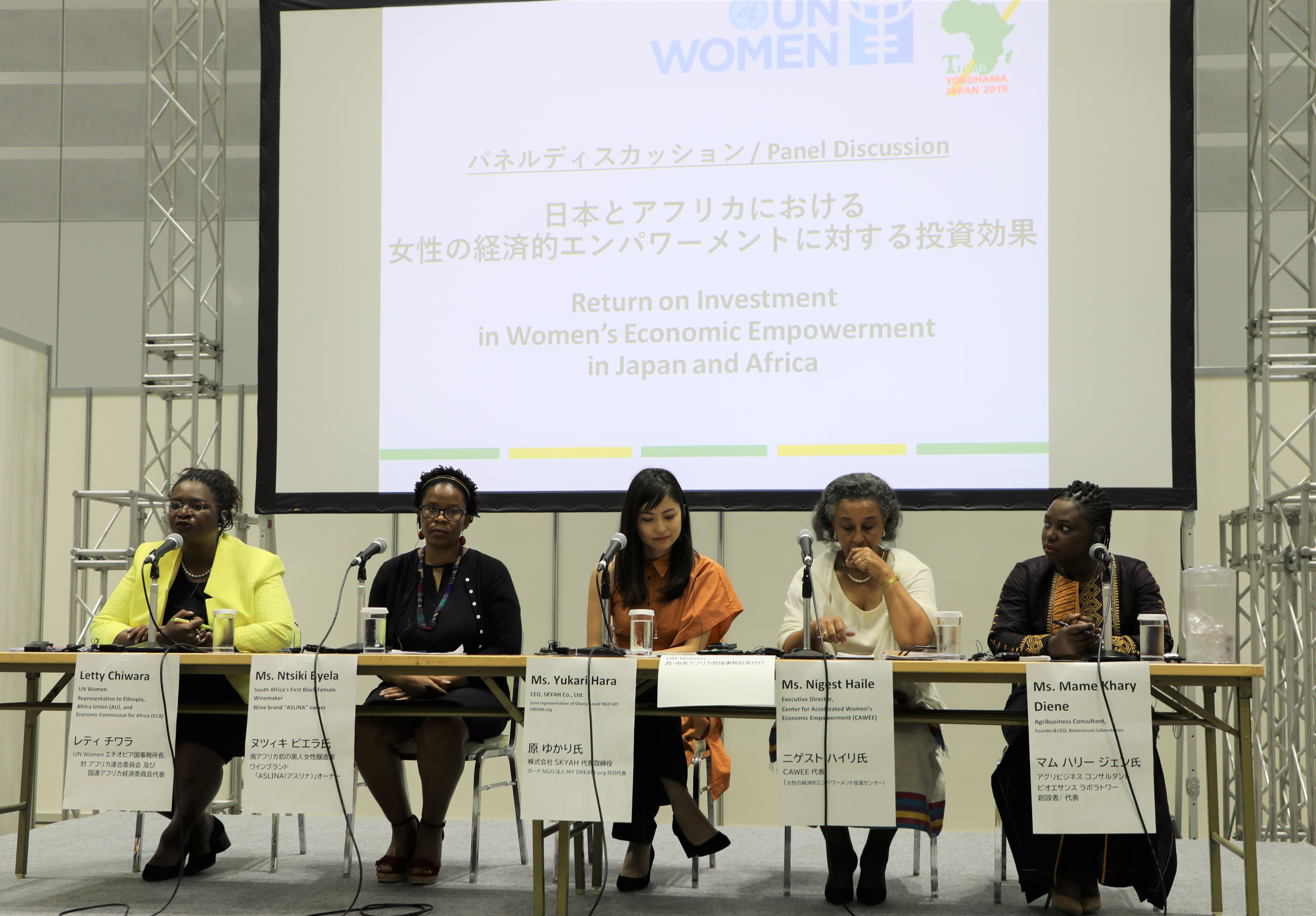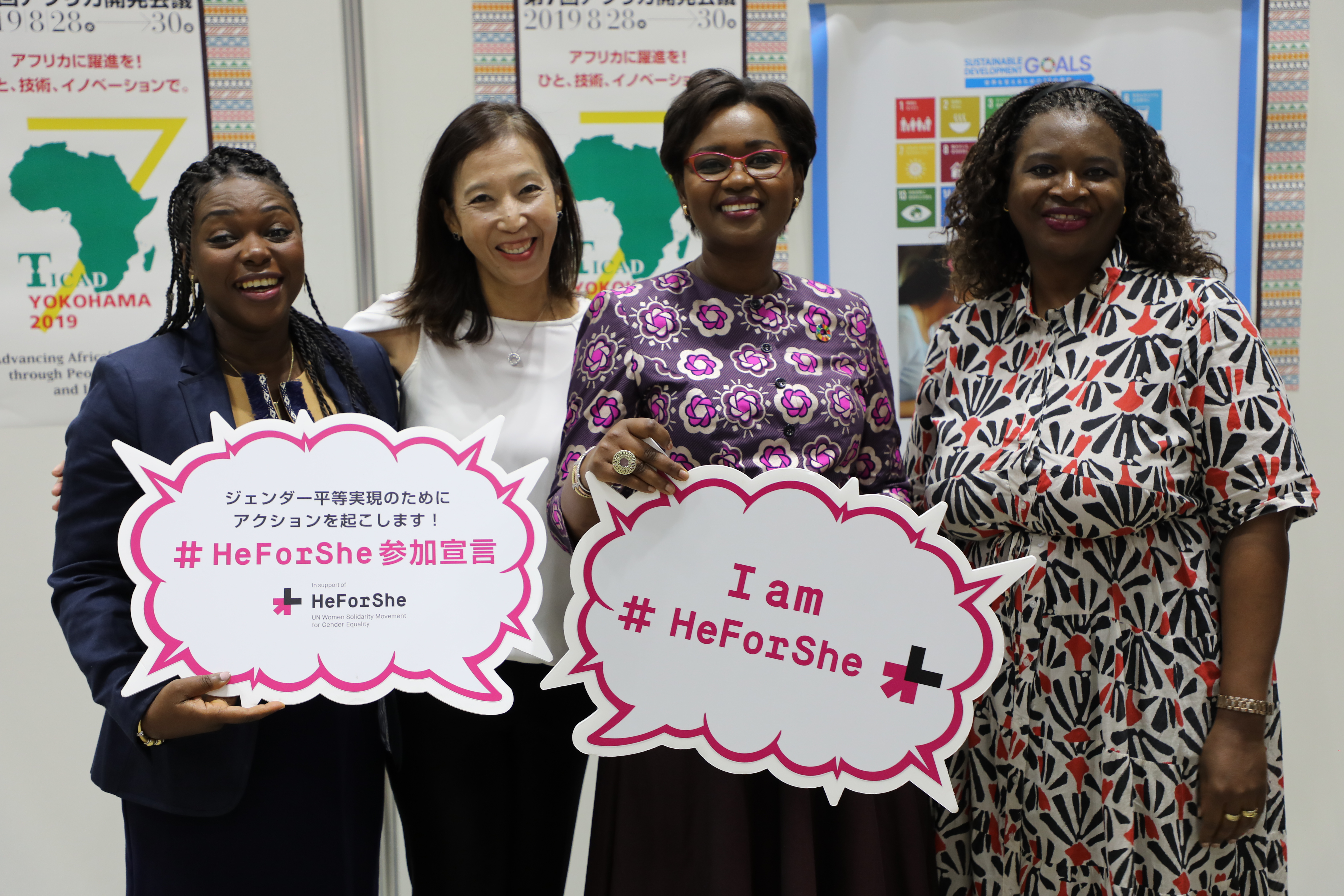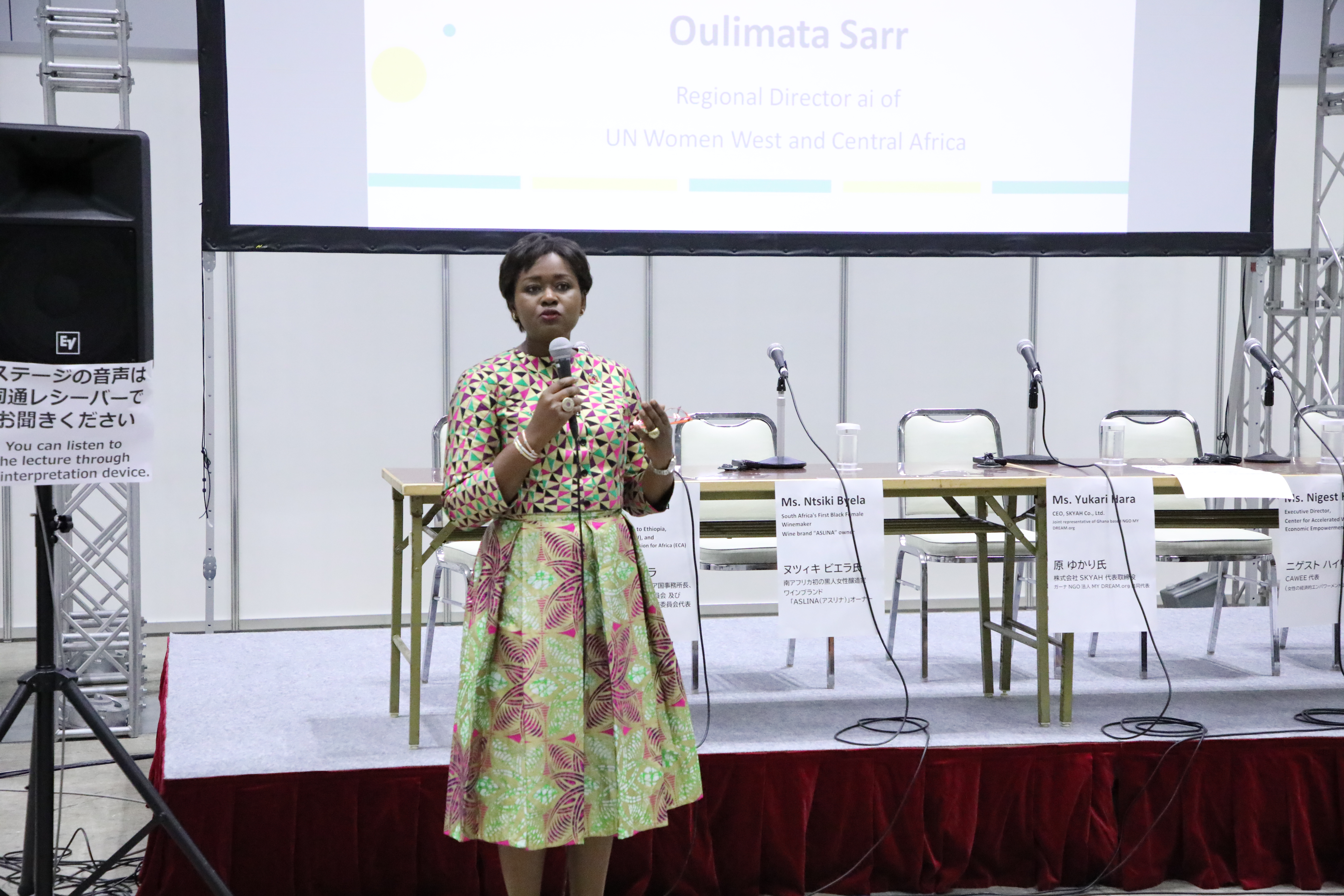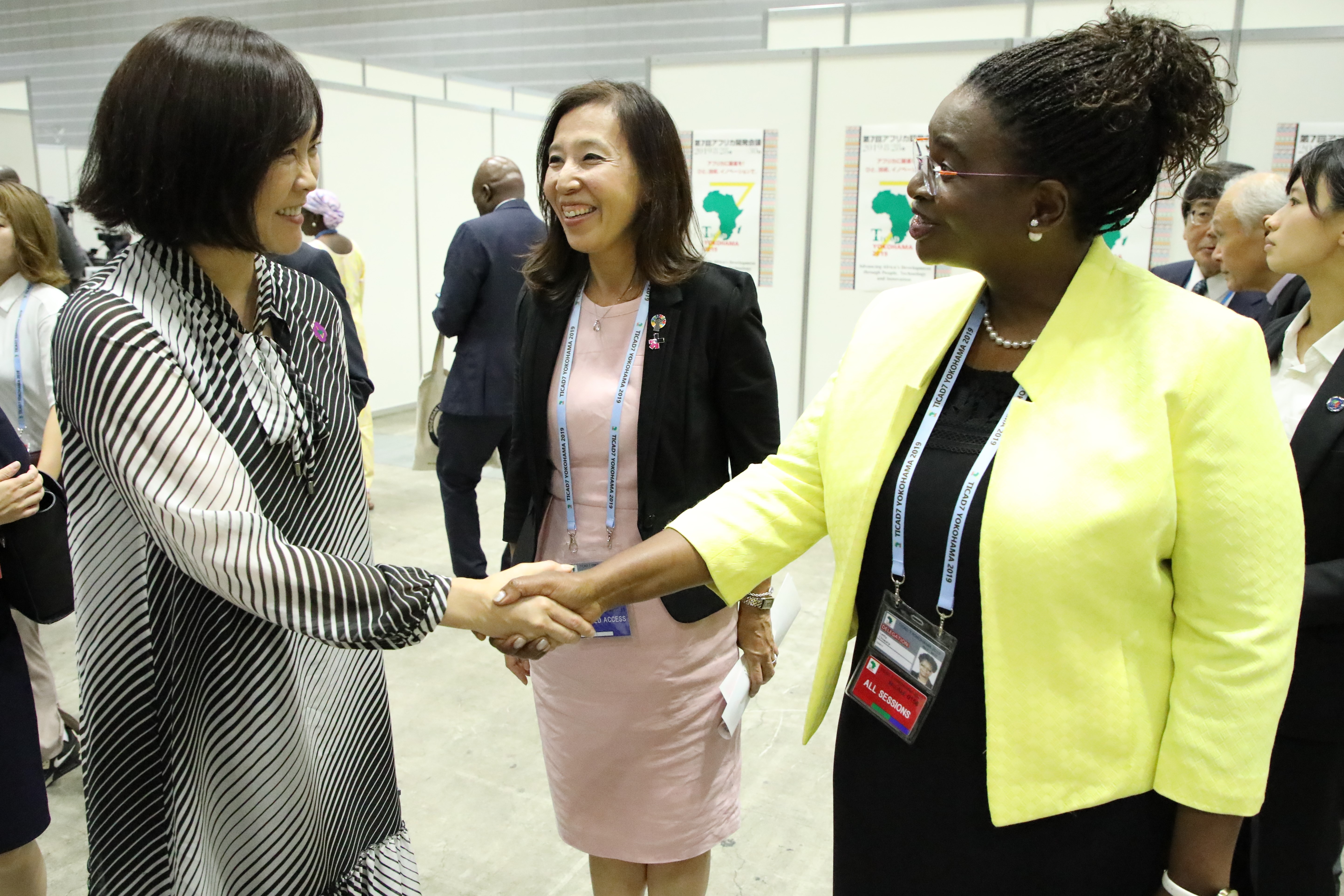UN Women hosted first official side event at the Tokyo International Conference on African Development
Date:
August 28th, 2019, UN Women hosted a side event at the seventh Tokyo International Conference on African Development (TICAD7). In the first ever UN Women official side event at TICAD, African and Japanese women entrepreneurs, officials from UN Women and other UN entities, representatives of Japanese Governments and the private sector came together to discuss the return on investment in women’s economic empowerment in Japan and Africa.

Moderated by Letty Chiwara, UN Women Representative to Ethiopia, Africa Union and UN Economic Commission for Africa, the panel brought together Mame Khary Diene, CEO of Bioessence Laboratories; Nigest Haile, Founder and Executive Director of Center for Accelerated Women's Economic Empowerment (CAWEE); Yukari Hara, Founder and CEO of SKYAH Co., Ltd.; and Ntsiki Biyela, South African winemaker and businesswoman.
The event served as a platform for women entrepreneurs from Africa and Japan to speak on their experiences, share best practices and lessons learned in entrepreneurship and women’s economic empowerment.
Speaking on the importance of women’s economic empowerment Ntsiki Biyela, South Africa’s first black female winemaker said “Women are the backbone of the world, so it is important to invest in them”.

Mame Khary Diene, CEO of Bioessence, shared how she has been exporting shea butter, baobab and other niche products to Japan for more than 10 years and how she has been empowering women in the agricultural value chains in West Africa. She emphasized the importance of making quality products to trade internationally. “Africans cannot be the exception of non-quality. We have to make sure our products meet the demands of the Japanese market and it will be a way for our countries to reduce the gap in trade balance” she said.
Yukari Hara, Japanese woman entrepreneur living in Ghana, insisted on the need to learn about local cultures to create business partnerships: “African businesspeople need to know about Japanese culture and Japanese businesspeople need to know about African cultures” she said. “It is also important to have men walk the journey with us to create a greater impact for the future generations” she added.
Women’s access to resources was one of the main challenges mentioned by panelists and the audience. Panelist Nigest Haile, founder of CAWEE, shared a good practice to improve women’s access to funds, as implemented by her Center: “We have succeeded in creating a risk fund where women who are unable to show collaterals can still access loans and fund their businesses.”

During their opening statements, Oulimata Sarr, Regional Director a.i. of UN Women WCARO and Kae Ishikawa, Director Japan Liaison Office highlighted the role of UN Women in women’s economic empowerment and successful experiences in strategic areas like climate smart agriculture. Oulimata Sarr shared key elements for gender equality “If we want to achieve women’s empowerment, we need to address the issues of rights, representation and resources” she said. “The gender machinery around the world can be stronger when women think and work together.”
Kae Ishikawa similarly echoed the importance of representation: “We need to make sure women are represented at the managerial level and decision-making level.”
On the sidelines of the event, women entrepreneurs who took part in the panel and UN Women officials sat to discuss some concrete next steps to facilitate business opportunities between Africa and Japan as well as market access to export African products to Japan. They agreed to set up a virtual trade hub to facilitate availability and accessibility of requirement checklists, products in high demand, skills required and products standards to export to Japan.

UN Women’s booth at the exhibition hall of the Conference also received the visit of the First Lady of Japan and the Minister of Gender Equality who expressed their support for UN Women’s work.